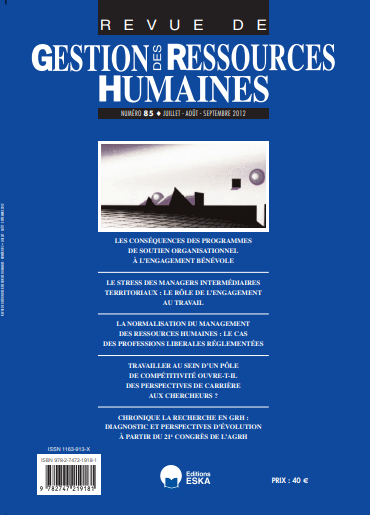CONSEQUENCES OF CROSS BORDER INTERNATIONAL CORPORATE VOLUNTEERING PROGRAMS ON VOLUNTEERING EMPLOYEES
Keywords:
cross border international corporate volunteering, identification, reciprocation, corporate support, turnover intentions, commitment.Abstract
This article aims to measure consequences of cross
border international corporate volunteering (ICV)
programs on volunteering employees. ICV programs are prevalent across Europe and North
America. In France, program is mainly supported by
Planete urgence (Pu), an intermediary nongovernmental organization that is using the legal framing
of “solidarity Leaving” law. The firm support
volunteering employees, firstly by giving financial
aid to Pu, secondly by providing material and logistical support to volunteers during the mission preparation. using quantitative data gathered to Pu’s
volunteers, this paper explores impact of these two
form of ICV support on volunteering employee attitudes: affective commitment and intention to quit -
and two theoretical mechanisms identified in the
literature (Jones, 2010) through which ICV program
can result in work outcomes: identification and reciprocation processes. Our findings suggest 1) that
indirect financial support has no impact on organizational attitudes, 2) direct support increases affective commitment and decreases intentions to quit 3)
that both identification and reciprocation processes
are significant underlying mechanisms through
which direct support can result in work outcomes.








